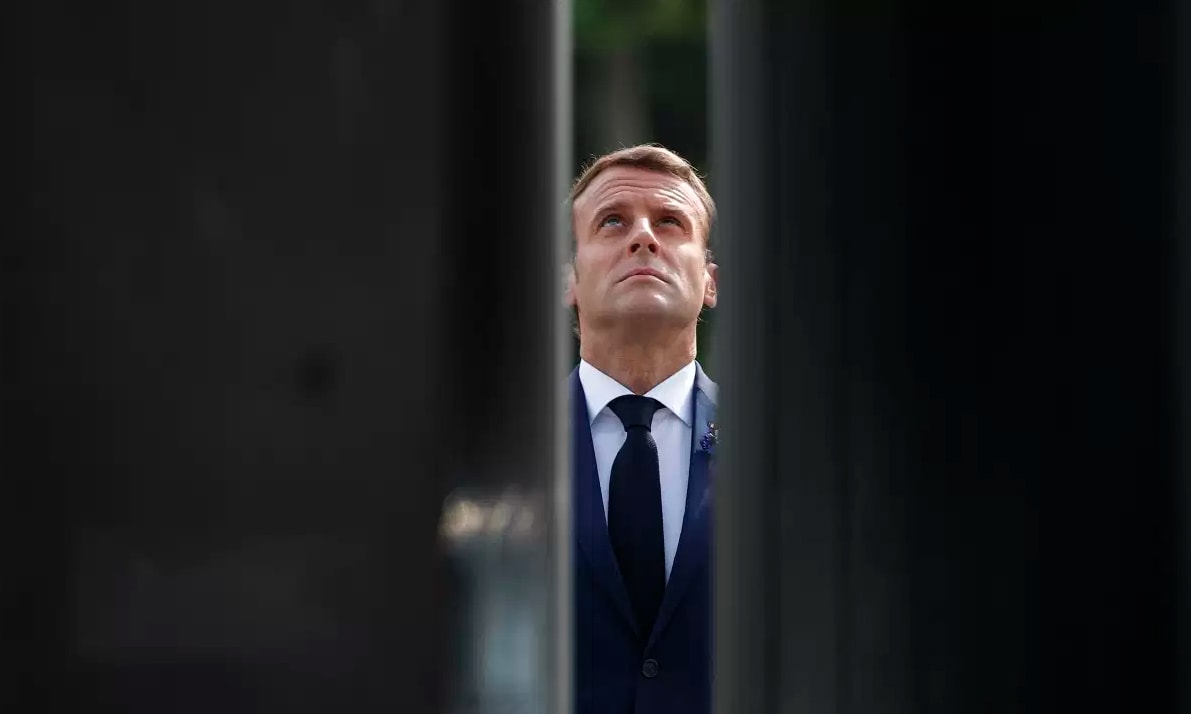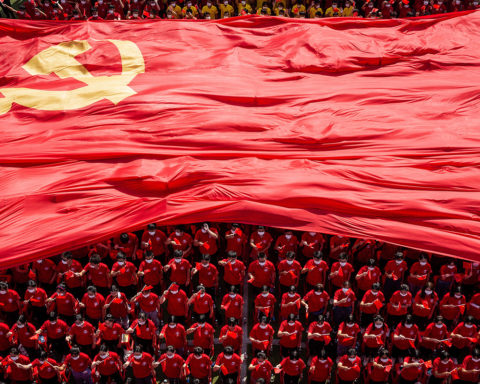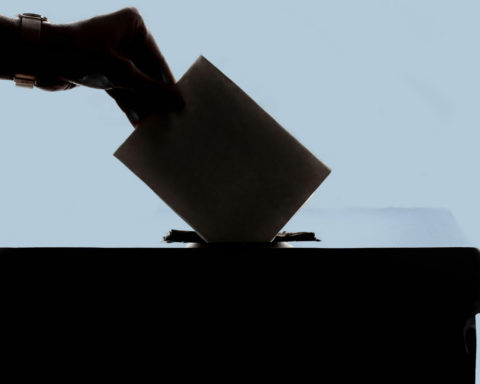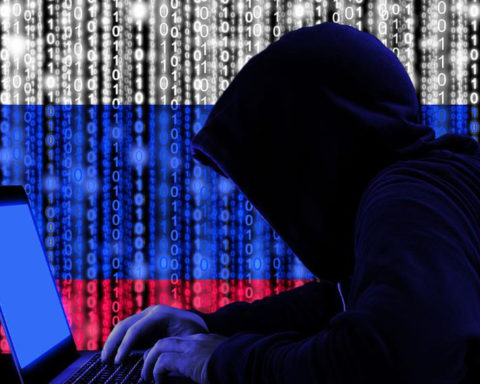La crise sanitaire dure depuis quatre mois. Le danger épidémique semble s’éloigner mais les dégâts humains, sociaux et économiques se révèlent chaque jour. D’ores et déjà les premiers bilans sur l’attitude de notre pays pendant la crise se dessinent. L’Institut Montaigne vient de publier un rapport circonstancié d’analyse de l’action publique française pendant cette crise. Comment la gestion de crise a-t-elle été organisée au plus haut niveau de l’État ? Comment se sont articulés les pouvoirs politiques et médicaux ? Quelle latitude ont eu les territoires et les entreprises pour agir malgré la centralisation extrême de l’organisation de la santé publique ? Comment la méfiance réciproque entre le pouvoir politique et la société s’est-elle exprimée ? Autant de questions dont les réponses aideront à tirer les enseignements de cette expérience, pour faire face à l’avenir.
UP’ présente à ses lecteurs des extraits du rapport « L’action publique face à la crise du Covid-19 », coordonné par Nicolas Bauquet de l’Institut Montaigne, une plateforme de réflexion, de propositions et d’expérimentations consacrée aux politiques publiques en France et en Europe.
Le combat n’est pas définitivement gagné, face à un virus dont personne ne peut savoir aujourd’hui s’il disparaîtra comme le SRAS, ou reviendra plus meurtrier encore comme la grippe espagnole. Mais la France, comme le reste de l’Europe, semble sortir peu à peu de l’état d’urgence sanitaire. Dans le même temps, chacun en est conscient, elle rentre en état d’urgence économique. L’arrêt de l’activité productive, particulièrement brutal et profond dans notre pays, le contexte de crise économique mondiale, les déséquilibres structurels qui menacent désormais l’intégrité du marché unique européen et la pérennité de la zone euro, ouvrent une phase de profonde incertitude, et peut-être de crise sociale majeure, sur fond de chômage de masse.
Pour faire face à ces défis, dans quel état politique notre pays se trouve-t-il après quatre mois de crise ? Et quelles leçons tirer de cette période exceptionnelle, une expérience qui a mis à nu les forces et les faiblesses de nos institutions, de notre système politique, et transformé les rapports entre l’État et le corps social ? Nul doute que les mois qui viennent verront prospérer des recherches en responsabilité individuelle à tous les niveaux.
Or l’urgence paraît de mener un travail d’enquête sur la manière dont chacun des acteurs de cette crise a répondu, à son niveau ou à sa place, à ces circonstances exceptionnelles. C’est cette réponse collective qui a permis au système de tenir, grâce à la mobilisation des soignants, à la réactivité des entreprises, au civisme et à la solidarité de la société civile, et finalement à un processus de déconfinement qui apparaît aujourd’hui maîtrisé. Dans le même temps, cette crise semble avoir laissé aujourd’hui un lien politique encore plus fragilisé qu’il y a quatre mois.
Car, quand la France entre dans la crise sanitaire, courant février 2020, le lien de confiance politique est déjà très abîmé dans une « France en morceaux », dont les multiples fractures ont été révélées, et encore aggravées, par le mouvement des Gilets Jaunes. La réforme des retraites ajoute encore à la tension politique, à quelques mois d’élections municipales qui apparaissent perdues d’avance pour l’exécutif. Mais alors que la crise sanitaire, dans nombre de pays comparables au nôtre, provoque un réflexe d’union sacrée autour de ses dirigeants, en France, elle est venue à certains moments exacerber et élargir la défiance politique : exacerber, car le sentiment répandu d’avoir été victime d’un mensonge d’État sur la question des masques abîme encore la relation entre les citoyens et le gouvernement ; élargir, car l’épisode du maintien du premier tour des élections municipales, sous la pression d’une classe politique que la « révolution » attendue du candidat Macron devait avoir balayée ou à tout le moins remplacée, élargit la fracture entre les Français et l’ensemble de leurs représentants. Pire, au cours de la crise, c’est le lien de confiance entre les Français et leur État qui paraît désormais menacé.
Organisation d’une gestion de crise
Partout, la réponse à la crise sanitaire de la part des autorités politiques relève d’un paradoxe. D’un côté, elle implique un rôle central de chaque gouvernement, seul à même de coordonner la lutte, de prendre l’initiative, de fixer la stratégie et de mobiliser les ressources nécessaires. La pandémie a été un moment d’affirmation de la centralité du politique, et aussi un moment de retour au national.
Mais la crise sanitaire est aussi le moment par excellence où « l’État ne peut pas tout », ou en tous cas pas tout seul. D’abord parce que l’État ne sait pas tout, face à un virus encore largement inconnu, et qu’il doit se reposer sur une expertise scientifique qui ne vaut que par son indépendance par rapport aux injonctions politiques. Ensuite parce qu’il a besoin de la mobilisation et de l’engagement de l’ensemble des acteurs, et d’abord des citoyens eux-mêmes, dont le comportement est la clé du succès ou de l’échec d’une lutte sanitaire.
L’enjeu des dispositifs de gestion de crise est donc d’utiliser « à plein » la centralité du pouvoir sans en surjouer la verticalité. Le but est de clarifier le lieu de la décision stratégique tout en raccourcissant au maximum les lignes de communication, et de décentraliser autant que possible les modalités de sa mise en œuvre, pour permettre à chacun des acteurs d’adapter la stratégie globale dans un contexte de grande incertitude, où la prise d’initiative et la remontée d’information sont des facteurs essentiels de réussite.
Cet équilibre est particulièrement crucial dans les premières phases de la crise, où tout se joue sur la capacité des systèmes sanitaires à détecter des signaux faibles, et sur celle des systèmes politiques à passer de l’alerte à la mobilisation.
Le choix français de la centralité et de la verticalité
Or, face à la crise sanitaire, l’exécutif français a fait le choix de l’affirmation de sa centralité, mais plus encore, celui de la verticalité. Dès le début de la pandémie, le lieu de la décision a été symboliquement établi au sein du Conseil de Défense, réuni autour du président de la République, juste avant le Conseil des ministres. Parallèlement, le choix a été fait d’une communication de crise essentiellement politique, centrée sur les discours solennels du président de la République et du Premier Ministre. C’est à partir de cette dyarchie spécifiquement française que s’est organisée une gestion de crise marquée par la verticalité.
Celle-ci a pris successivement plusieurs formes. Du 27 janvier au 17 mars, la réponse de l’État est pilotée exclusivement à travers le ministère de la Santé, où a été mise en place une cellule de crise dirigée par Jérôme Salomon, directeur général de la Santé, trois jours après l’identification du premier cas de contamination en France. Jusqu’au début du confinement, elle est la seule instance de coordination de la réponse de l’État à une crise qui est encore abordée sous son seul angle sanitaire.
C’est en particulier ce choix qui place les Agences régionales de santé (ARS) en première ligne : organisation des hôpitaux et du réseau de soins, mais aussi logistique de la distribution des masques, transferts de patients… Or ces bureaux destinés à la gestion financière et administrative des structures de soin ne sont aucunement préparés à une action d’urgence. Cette primauté du sanitaire dans la gestion de crise n’a pas permis de mettre en cohérence les différents services de l’État sur le terrain. Ceci a obéré la possibilité de détecter les signaux faibles et de s’adapter rapidement à une situation mouvante, à l’abri des interférences politiques et sans subir de blocages bureaucratiques Un exemple frappant en est le retard mis à intégrer les laboratoires publics dans la mobilisation des moyens de tests.
Ce n’est que le 17 mars que la cellule interministérielle de crise (CIC) est activée, au sein du ministère de l’Intérieur, associé au ministère de la Santé, sous le contrôle du Premier ministre. C’est de là qu’est orchestré le confinement du pays, marqué par une centralisation extrême, qui se reflète dans des arbitrages interministériels parfois rendus à un niveau de détail qui traduit l’absence quasi totale de marge d’appréciation laissée aux autres échelons de la puissance publique. Cœur de l’État verbalisateur, la CIC ne peut être celui de l’État stratège : qu’il s’agisse de la gestion de la pénurie de masques ou de celle des tests, les grandes questions se traitent ailleurs, dans un écheveau d’initiatives qui mobilisent les cabinets ministériels en ordre dispersé.
La préparation et la conduite du déconfinement amènent à une nouvelle modification du dispositif de gestion de crise. D’abord avec la constitution, le 2 avril, de la « Commission Castex », directement rattachée à Édouard Philippe. Dégagée de toute responsabilité opérationnelle et consacrée entièrement à la préparation stratégique du déconfinement, cette commission vise à s’extraire des arbitrages quotidiens, et à créer un dialogue avec les grands partenaires de l’État.
Après cette phase de transition, et une fois le déconfinement mis en œuvre, un nouveau dispositif a été annoncé le 20 mai, avec un centre interministériel de crise dirigé par le préfet Denis Robin, instance unique de coordination de la réponse de l’État à la crise, intégrant les cellules des ministères de l’Intérieur et de la Santé, et impliquant les préfets et les directeurs généraux des ARS.
Pourquoi faire simple quand on peut faire compliqué ?
À travers ces quatre phases de la gestion de la crise au plus haut niveau de l’État, on retrouve les mêmes difficultés structurelles à orchestrer sa réponse, et surtout à permettre à la puissance publique de s’adresser à d’autres qu’à elle-même.
Ce qui frappe en effet, c’est le caractère non seulement complexe, mais aussi largement confidentiel de ces différentes structures. Cela empêche une identification claire des décisionnaires par les acteurs extérieurs à la sphère des administrations centrales. La multitude des interlocuteurs, couplée à un manque de définition des voies d’accès et d’échange, aboutit au primat des contacts personnels et à un fonctionnement largement informel.
Tous les témoignages, de l’intérieur comme de l’extérieur de l’État, font état d’une extrême centralisation de la réponse à la crise, accompagnée d’un fonctionnement hiérarchique rigide et d’une faible marge de manœuvre donnée aux échelons intermédiaires et aux services déconcentrés. Ces trois facteurs concourent à allonger le circuit de circulation de l’information, concentrer à l’extrême la décision, et déresponsabiliser tous les échelons administratifs.
Enfin, alors qu’il est habituellement au cœur des pratiques de gestion de crise et du fonctionnement de la cellule qui lui est dédiée, l’enjeu de la communication ne semble pas avoir fait l’objet d’une stratégie clairement établie, reposant sur la définition d’un nombre limité d’émetteurs, une stricte coordination des messages, et la définition d’un point d’équilibre entre mobilisation et sécurisation.
Pouvoir médical, pouvoir politique
Le dialogue entre scientifiques et politiques, et la répartition de leurs rôles pendant la crise sanitaire, est un élément structurant de la réponse à la pandémie.
En France, la première phase de la crise a été marquée par le faible poids des instances qui auraient pu jouer un rôle d’alerte et s’imposer comme les interlocuteurs scientifiques d’un pouvoir politique qui garde comme priorité, jusqu’à la première semaine de mars, la continuité de la vie politique et économique.
Le Haut Conseil de la santé publique, mis en place en 2007, compte parmi ses missions de « fournir aux pouvoirs publics, en lien avec les agences sanitaires, l’expertise nécessaire à la gestion des risques sanitaires », et l’une de ses quatre commissions est consacrée aux maladies infectieuses et aux maladies émergentes. Saisi par la Direction générale de la Santé le 3 février, il ne rend son avis sur la prise en charge des cas confirmés d’infection par le nouveau coronavirus que … le 5 mars. La Haute Autorité de Santé n’a pas non plus joué un rôle d’alerte ou de conseil dans la première phase de la crise. L’agence Santé publique France, qui comporte une « Direction alerte et crise », est, elle, placée sous la tutelle directe du ministère de le Santé, et n’a pas joué de rôle autonome dans l’appréciation de la crise.
Ainsi, aucune structure médicale ou scientifique n’apparaît en mesure, lors de la première phase de la crise, de jouer un rôle de référence indépendante aussi bien auprès de l’exécutif que du grand public. Face à ce vide, le mois de février est marqué au contraire par l’émergence, dans l’espace médiatique, de figures médicales qui concentrent l’attention et s’érigent en une sorte de contre-pouvoir, profitant de la faiblesse de la parole politique.
Or dans le même temps, l’Organisation mondiale de la Santé (OMS), première référence de chacune des autorités gouvernementales, tarde à sonner l’alerte mondiale, du fait du caractère tronqué des informations données par le gouvernement chinois, et des pressions directes que ce dernier exerce sur l’organisation. Ce n’est que le 11 mars que l’OMS déclare officiellement l’état de pandémie. C’est précisément à ce moment que la prise de conscience au plus haut niveau de l’État s’opère en France, et fait basculer le pays dans une autre phase de la crise, où le pouvoir médical, jusqu’ici marginalisé, va brusquement occuper l’espace de la décision publique.
Les médecins au chevet de l’État
C’est en effet le 11 mars qu’Emmanuel Macron décide la création du Conseil scientifique Covid-19, placé auprès du ministre de la Santé, Olivier Véran, « pour éclairer la décision publique dans la gestion de la situation sanitaire liée au coronavirus ». Il est présidé par le professeur Jean-François Delfraissy, et compte dix autres experts. Le 24 mars est créé le Comité analyse, recherche et expertise (CARE) Covid-19, composé de douze chercheurs et médecins, et présidé par Françoise Barré-Sinoussi, Prix Nobel de médecine. Mais c’est le Conseil scientifique qui va rapidement jouer un rôle essentiel dans la gestion politique et médiatique de la crise par l’exécutif.
Dès le 12 mars, le Conseil scientifique lance l’alerte scientifique au plus haut niveau de l’État, en présentant au président de la République les modélisations [aujourd’hui controversées NDLR] de Neil Ferguson, de l’Imperial College de Londres, particulièrement alarmistes. C’est alors que l’exécutif bascule vers la priorité sanitaire, la fermeture des écoles, puis le confinement. À l’apparente absence initiale de la science va donc succéder une préséance donnée au Conseil scientifique, derrière l’autorité duquel le gouvernement peut donner parfois l’impression de s’abriter.
À partir du 16 mars, c’est l’alliance du pouvoir politique et du pouvoir médical qui va faire basculer la France dans un confinement de presque deux mois.
Mais cette nouvelle configuration souffre de plusieurs faiblesses, et d’abord de la nature ad hoc du Conseil scientifique, qui le prive de l’assise symbolique d’une grande institution de recherche indépendante.
Pouvoir politique et pouvoir médical : en France, ces deux puissances ont en fait beaucoup en commun, à commencer par une certaine culture de la verticalité, qui peut expliquer certains aspects de la gestion de la crise sanitaire, comme la marginalisation de la médecine de ville par rapport à l’hôpital, mais aussi la faible place donnée à la santé publique. Il en résulte à la fois un manque de stratégie scientifique pour construire un appareil de connaissance efficace du suivi de l’épidémie, et une incertitude de l’opinion sur la source et l’autorité de la parole scientifique.
La réponse à la crise dans les territoires
Vue des territoires, l’action de l’État a été caractérisée par le paradoxe saisissant d’une extrême centralisation, notamment dans les modalités du confinement, et d’une absence de l’État face aux défis les plus pressants, comme l’approvisionnement en masques ou l’organisation de tests massifs. L’État est apparu entravé par sa propre organisation, notamment du fait de l’absence de chaîne hiérarchique claire entre les préfets et les agences régionales de santé (ARS). Il est aussi apparu refermé sur lui-même, prisonnier d’une logique centrée sur le maintien de l’ordre public, souvent déconnecté des défis concrets que devaient relever, dans l’urgence, les acteurs locaux pour assurer la continuité des services essentiels et répondre aux inquiétudes de leurs administrés.
Vue des territoires, cette première phase de la crise a en fait été marquée par un paradoxe. D’un côté, elle a été vécue comme un moment de centralisation particulièrement forte, voire caricaturale dans certaines de ses expressions, démontrant que l’État est encore capable d’agir à chaque coin du pays, au moins pour le mettre à l’arrêt. Mais dans le même temps, cet État a souvent fait la preuve de sa déconnexion avec les réalités locales, de son incapacité à agir, voire de sa pure et simple absence.
Le rôle des entreprises pendant la crise
Dans une crise sanitaire qui devient très vite un choc économique, la rapidité du gouvernement à protéger les entreprises a été unanimement saluée, même si les défis principaux restent encore devant nous. Mais face à la pandémie, les entreprises sont aussi celles qui protègent les salariés et leur santé. Ce sont elles qui maintiennent les services essentiels à la vie du pays. Ce sont aussi elles qui peuvent fournir les équipements ou les solutions technologiques nécessaires à la lutte contre le virus.
Parmi les entreprises, celles qui avaient des implantations ou des partenaires en Chine ont pu s’appuyer sur leur expérience pour mettre en place une gestion de crise précoce, et déployer des protocoles sanitaires qui ont permis de mobiliser les salariés autour d’un double objectif de protection de leur santé et de maintien de l’activité. Beaucoup d’entre elles se sont mobilisées au service de la lutte contre la pandémie, en fournissant notamment du matériel de protection.
Mais face à la pénurie de masques, l’État a choisi de gérer seul la question des approvisionnements, sans exploiter toute l’expertise qu’auraient pu apporter certains groupes de distribution ou de logistique.
Le 13 mars, le Premier ministre Édouard Philippe prend un décret de réquisition des stocks et de la production de masques, qui s’étend aux stocks, aux importations et à la production des entreprises.
Pour certaines entreprises particulièrement exposées, la réquisition des masques crée de nouvelles difficultés et menace même la continuité de leur activité.
Surtout, cette décision signifie l’arrêt brutal de toute activité d’achat et d’acheminement de masques par les entreprises françaises. Alors que la France compte de très importants groupes de distribution disposant de réseaux d’achats très étendus en Chine, et qu’elle peut aussi s’appuyer sur des fleurons des services logistiques internationaux, c’est l’État qui entreprend de démarcher, négocier et acheminer les centaines de millions de masques nécessaires, dans un contexte de concurrence internationale exacerbée.
Si les mesures économiques mises très rapidement en place par le gouvernement ont joué un rôle essentiel pour la sauvegarde des entreprises, ces dernières n’ont pas réellement été considérées comme des partenaires de la lutte sanitaire dans la phase de déconfinement, ce qui a limité leur capacité à prendre des initiatives pour favoriser la reprise de l’activité dans un cadre sécurisant.
Une crise de la méfiance réciproque
Au plus fort de la crise, le pouvoir politique et le pouvoir sanitaire continuent d’occuper, seuls, le devant de la scène de la responsabilité. Pourtant, en temps de pandémie, c’est le comportement de l’ensemble des citoyens qui constitue la principale clé du succès de la politique sanitaire, et l’adhésion de la plus grande partie possible de la population aux mesures proposées devient cruciale.
Le Conseil scientifique, et en particulier son président, Jean-François, Delfraissy, sont particulièrement conscients des risques d’une coupure avec la société. Dans son avis du 20 avril sur les conditions nécessaires au lancement du déconfinement, le Conseil scientifique souligne que « la levée du déconfinement doit recueillir une large adhésion de nos concitoyens, appelés à y participer activement », et lance cette formule : « faire confiance pour garder la confiance ».
L’absence de toute suite donnée à ces demandes souligne en creux deux des manques qui caractérisent la gestion de la crise sanitaire par l’État : la faiblesse de la dimension de santé publique, et le manque de confiance politique dans la société civile.
La guerre contre le virus, telle qu’elle a été annoncée par le président de la République, est d’abord une guerre de professionnels, les médecins, appuyée par la logistique, mais où la troisième ligne formée des citoyens ordinaires n’est pas appelée à autre chose qu’au respect des consignes, sous peine de verbalisation. Dans un tweet du 11 mai, le ministre de l’Intérieur relève que, depuis le début du confinement, près de 21 millions de contrôles ont été effectués, et 1,1 millions de contraventions dressées. Plus que la mobilisation des citoyens, c’est celle des forces de l’ordre qui est ici mise à l’honneur.
La forte volonté des citoyens de s’engager, au-delà de l’obéissance aux consignes de confinement, n’a pas été placée au cœur de la stratégie des pouvoirs publics. Malgré quelques expériences locales réussies, les associations ont été peu associées à une lutte sanitaire pour laquelle leur capacité de contact avec les populations aurait pu se révéler précieuse.
La question particulièrement sensible qui cristallise la défiance entre la société civile et l’État est celle des masques. Beaucoup a été dit sur la question du désarmement de l’État et la situation de pénurie dont les responsables découvrent l’ampleur dans le courant du mois de février. Cette question est révélatrice du rapport entre l’État et la société civile : la difficulté pour le premier de reconnaître une erreur ou une difficulté, et d’en appeler à l’aide de la seconde.
Plus que l’absence de stocks de masques, qui a été le lot de la plupart des pays européens, c’est le choix de ne pas faire appel aux citoyens pour les fabriquer qui révèle une réticence fondamentale, pour l’État, à s’appuyer sur la société.
En retour, le manque de confiance de la société envers l’État s’exprime notamment par des formes de refus du numérique qui handicapent la capacité de l’État à se transformer pour répondre aux attentes qui s’expriment envers lui. En témoigne la faible place donnée en France aux outils numériques dans la lutte contre le Covid-19. Aux blocages bureaucratiques, liés à la faible culture numérique au sein de l’État, à une culture du cloisonnement et du contrôle de l’information, s’ajoute un blocage sociétal, créé par la peur du numérique comme outil de contrôle social et comme menace pour la vie privée. Ces préoccupations sont légitimes, et le risque de créer des précédents en matière de restrictions de libertés ne saurait être pris à la légère. Mais le refus du numérique semblent désormais préempter tout débat sur le rôle qu’il pourrait jouer au service de l’intérêt collectif, comme l’illustre la tension politique autour du projet StopCovid.
Refonte d’urgence
Pour conclure provisoirement ce premier bilan précurseur de nombreux autres qui viendront sans doute, il convient de ne pas oublier un fait essentiel : dans l’ensemble, le système a tenu. Le système hospitalier a su se réorganiser et accueillir le flux de malades sans donner lieu à des scènes traumatiques de tri de ces derniers, même si les soignants ont été confrontés dans certaines régions à des situations critiques. L’État a pu rapidement mettre en place des dispositifs d’aide qui ont permis une continuité de la vie économique. Les services essentiels ont été maintenus grâce à la mobilisation des services de l’État, des collectivités locales et des entreprises. Les réseaux de communication, véritables fils de vie de la nation, n’ont jamais été interrompus. Enfin, l’État a fait la preuve de sa capacité à se faire écouter du pays – avec des records d’audience qui ont fait pénétrer la parole politique dans un nombre inédit de foyers, et une obéissance générale aux consignes gouvernementales qui, qu’elle trouve sa source dans le civisme, la peur de l’amende, ou celle de la maladie, n’en a pas moins été remarquable.
Mais trop souvent, ces résultats n’ont tenu à qu’à un fil ténu, formé par un nombre limité de personnes qui, à tous les niveaux de l’action publique, ont su outrepasser le cercle étroit de leurs compétences pour prendre leurs responsabilités face à la réalité de l’urgence. Plus que sur le redécoupage de ces compétences, entre les différents échelons de l’État, ou entre l’État et les collectivités locales, c’est sur cet esprit de réalisme et de responsabilité, et sur ces personnalités qui ont émergé de la crise, qu’il faut construire la nouvelle phase de refonte de l’action publique. Or cette refonte est aujourd’hui la grande urgence, pour faire face aux autres urgences qui nous attendent : face à la crise économique, face à la crise sociale, face à la fracture générationnelle qui va s’accentuer de manière dramatique, seule une ambition politique renouvelée dans les domaines de la santé, de l’éducation, du logement peuvent permettre de redonner du sens à l’action publique et à notre vie collective menacée par les forces centrifuges.
Lire le rapport complet (pdf)












